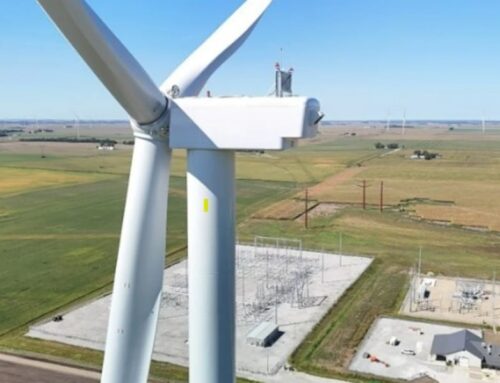How Indigenous Leaders Are Redefining New York’s Cannabis Market
November 13, 2025
This Native American Heritage Month, the Indigenous Cannabis Industry Association (ICIA) is welcoming its members, partners, and the Indigenous community to Washington, D.C., for its fourth annual Cannabis Policy Summit on November 11-13. ICIA currently has over 150 members across the country and are gathering in Washington to discuss what lies ahead for Tribal Nations in the industry.
“We’re witnessing a movement toward collective action during a turbulent time in Washington,” said ICIA Founder Rob Pero (Bad River) in a press release. “Our members represent a sovereign and united front of Tribes. Our Summit is becoming a meeting place for Indigenous leaders in the cannabis economy to build a strong, united foundation for long-term sustainable development.”
There are about 100 different tribal cannabis companies in the United States, most located west of the Mississippi River. What I have experienced so far in tribal cannabis has been impressive. I’ve witnessed a real commitment to future generations, the land, and long-term thinking—all of which are rare in the industry today.
I’ve seen a commitment to large-scale regenerative agriculture in Minnesota and now, new groundbreaking tribal businesses in New York. Tribal cannabis is just beginning in much of the East Coast. These pioneering businesses may be paving the way for other Indigenous cannabis organizations in the eastern corridor.
When he launched Skyworld, Alex Anderson, a proud member of the Tuscarora Nation, didn’t just envision creating a cannabis brand—he wanted to build a movement. The name itself, derived from Tuscarora creation stories describing a celestial realm of origin and unity, signals Skyworld’s differentiation in an increasingly crowded New York market.
“Skyworld is more than a brand—it’s a call to unity,” said Anderson. “Under one sky, we’re all connected, and cannabis can heal divides, just as our ancestors taught us.”
Anderson’s vision is to produce premium, ethically cultivated cannabis while honoring Indigenous values. Skyworld operates out of Niagara Falls, New York—just outside Tuscarora Nation territory—under a New York State cultivator licence.
Despite the geographic separation from tribal land, the brand’s DNA remains deeply rooted in tradition. Skyworld opted into the New York state licensing program rather than launch their own regulatory framework in the Tuscarora Nation, which can be done by leveraging the sovereignty of the tribe.
Skyworld has begun the work of establishing itself as a premium player in New York’s $1.5 billion adult-use market. The company’s strategy hinges on exclusive genetics, sustainability as a competitive edge, and unique tribal storytelling. Weed strains like Power City Thunder—a blue raspberry hybrid named for the nearby Niagara Falls—and the revived Buffalo Blue Cheese #17, cater to both consumer nostalgia and novelty in the market.
In an industry under increasing scrutiny for its environmental impact, Skyworld stands out. Internal audits reveal the facility emits 2,500–3,000 kg CO₂ per kilogram of flower—35–45% below the industry average. Anderson attributes this to 100% hydroelectric power (which has near zero emissions), LED lighting, Airos technology for chemical-free air purification, and Indigenous-owned and local composting, which processes all green waste from the Skyworld facility.
Anderson is committed to net-zero operations by 2030 through solar integration and water recycling.
According to Anderson, Skyworld doesn’t just sell cannabis flowers, it sells a narrative. By weaving Tuscarora cosmology into its branding while keeping things modern by avoiding overdone stereotypes, Anderson is positioning Skyworld as a brand for everyone. While the Skyworld logo does not convey tribal cannabis in look and feel, the website proudly conveys Skyworld as an Indigenous-owned brand.
Skyworld is a self-funded enterprise and has already generated significant revenue. Anderson aims for $100M+ in annual sales within five years, with plans for multi-state expansion and a mentorship academy for Indigenous growers. It’s a bold vision for a small tribe.
While Skyworld operates within New York’s regulatory framework, Little Beach Harvest cannabis dispensary—managed by tribal member Jay Randolph Wright—demonstrates the power of tribal sovereignty. Located on Shinnecock Nation Territory in Eastern Long Island, the dispensary operates under the tribe’s Cannabis Regulatory Division (CRD), entirely independent of the New York state regulatory framework.
Operating under the CRD allows the Shinnecock Nation to design regulations that align with tribal values—emphasizing sustainability, transparency, and cultural respect. This autonomy has attracted both consumers who value ethical sourcing and other tribes seeking a blueprint for sovereign cannabis operations. Little Beach Harvest was one of the first dispensaries to open on Long Island as many non-tribal communities banned dispensaries there.
“For us, sovereignty isn’t just a right—it’s a responsibility,” said Wright. “We are building an economic foundation that fuels cultural preservation, supports our community, and proves that Indigenous‑led businesses can set the highest standards of the industry.”
Wright’s leadership has helped transform Little Beach Harvest into a model for economic self-determination. As mandated by the CRD, 4% of all revenue is donated directly back to the Shinnecock Nation. This funds everything from youth education to cultural preservation initiatives, turning every transaction into an act of community empowerment.
The design of Little Beach Harvest reflects Wright’s commitment to quality—it’s a stunning building built from the ground up. “The space was designed to feel warm, modern, and rooted in Shinnecock identity,” said Wright. “We wanted the architecture and interiors to reflect the Nation’s stewardship and craft, featuring cedarwood, native plants, and natural stone.”
The dispensary has ample parking and is easy to navigate once inside. Little Beach Harvest selectively carries products from other Indigenous growers. Wright actively fosters inter-tribal partnerships, creating a network that amplifies Native voices across the industry.
The success of Skyworld and Little Beach Harvest may signal a paradigm shift in the cannabis industry. Indigenous cannabis companies are starting to make their mark in the space. For too long, Indigenous communities were sidelined by prohibition despite their historic relationship with many plant medicines. Today, leaders like Anderson and Wright are reversing that narrative and replacing it with a transformational story.
New York’s legal market, still emerging from a chaotic rollout, needs operators the public has access to (in areas where there are bans) and can trust. Indigenous brands fill a critical gap, offering authenticity, sustainability, and community purpose—all of which command premium pricing. According to a 2023 Leafly report, consumers are willing to pay 20% more for products with verifiable social impact. If they execute well, this differentiation may assist them with market fluctuations and price compression.
Both companies reject harmful stereotypes. Skyworld’s cosmic branding and Little Beach Harvest’s sovereign model challenge outdated perceptions of Native communities, replacing them with images of innovation, professionalism, and resilience.
As other states legalize cannabis, Indigenous operators are poised to replicate these models. Wright said, “Other tribes have reached out to us for guidance. We’re proving that sovereignty isn’t a barrier—it’s our greatest asset.”
For investors, policymakers, and consumers, Native American Heritage Month is a reminder: the future of cannabis is not only green—it’s rooted in ancient wisdom.
Search
RECENT PRESS RELEASES
Related Post


